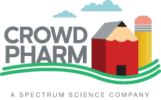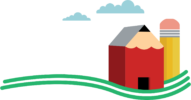Evolving Human Roles in an AI-Driven Healthcare Landscape
Terrence Brown, VP, Digital and AI Strategy
Suppose an advanced network of clever algorithms, rather than a single human, is in charge of tracking and managing your health. John, a nurse who used to manage vital signs and patient data, now collaborates with AI systems that anticipate patient hazards remarkably well. Sarah is a marketing executive using AI to draw real-time insights from massive databases of healthcare data, where she used to rely on conventional surveys and focus groups. This is the emerging reality of the healthcare sector in 2024.
The roles of healthcare pros like John and Sarah are changing dramatically as artificial intelligence continues to evolve. The data points to a future about the use of AI in healthcare in which these positions are changing into a more personalized, predictive, AI- and human- integrated future that serves more people than ever before.
The global healthcare AI market is projected to develop at a compound annual growth rate (CAGR) of 47.6% from 2023 to reach $102.7 billion (USD) by 2028, according to a report by MarketsandMarkets. This phenomenal rise is evidence of the progress of tech and healthcare practitioners’ growing confidence in and dependence on AI.
Healthcare workers now do more complex duties like evaluating data supplied by AI instead of manually entering data. AI has the potential to cut down on documentation time, with The American Medical Informatics Assocation (MIA) looking to reduce this documentation burden on US clinicians by 75% by 2025, enabling healthcare professionals to devote more of their attention to patient care and less time to paperwork.
AI is shifting the emphasis in healthcare marketing from broad-based techniques to individualized patient interaction. According to a Salesforce survey, 76% of consumers expect consistent interactions from various departments of a company. It’s a concept that is growing increasingly relevant in healthcare marketing. Thanks to AI-driven technologies, marketers can now predict patient behavior and alter their approach accordingly.
According to Deloitte’s second edition of the “State of Ethics and Trust in Technology” report, 56% of healthcare experts believe ethical concerns significantly hamper the adoption of AI. As a result, positions tasked with guaranteeing the moral application of AI and training medical personnel in its usage are becoming more prevalent.
AI is starting to help with mental and physical health treatment. Promising outcomes have been observed in apps like Woebot, an AI-driven chatbot for mental health. Madineni indicated in “Mental Health Survey Analysis & Prediction Using Deep Learning Algorithms” that users of Woebot had a significant reduction in depression symptoms.
In places with poor access to healthcare services, AI is helping with remote monitoring and AI-assisted telemedicine, delivering crucial healthcare services in rural places.
AI is taking on the job of health coaches and supporting medical practitioners. For instance, according to Lark Health, an AI coach used for chronic disease management and prevention, has shown a decrease in HbA1c values for people with diabetes.
Redefining human jobs rather than replacing them is the AI-driven healthcare revolution’s goal. Artificial and human intelligence synergy will build practical, individualized, and readily available healthcare. Within this dynamic environment, professionals like John and Sarah are not only observers but actively participating in creating a future in which technology and people come together for overall health and wellness.

